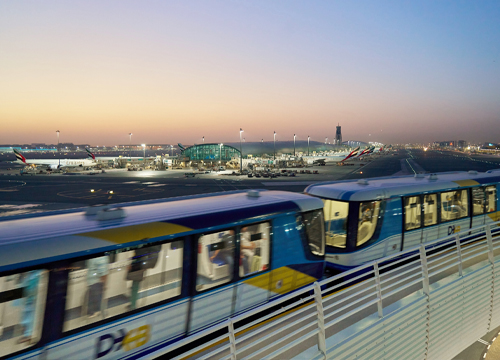Media
News and assets
News and assets
Discover vacancies and career opportunities
Conditions of use
Pioneering Innovation
Our approach to sustainability

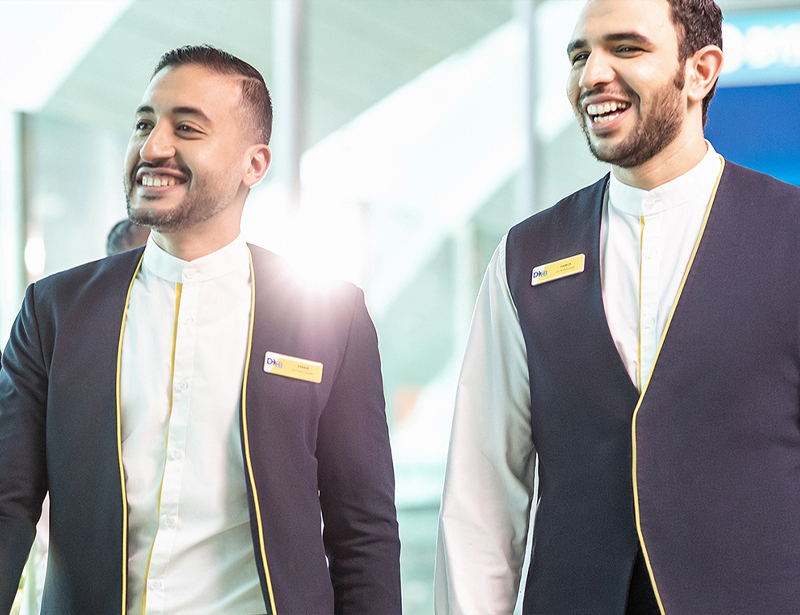
At Dubai Airports, we're not just overseeing Dubai's two airports, DXB and DWC – we're shaping the future of global aviation. With a commitment to sustainable growth and operational excellence, we balance the needs of diverse stakeholders to ensure seamless collaboration and maintain our airports' operational resilience.

In 2023, DXB proudly welcomed 87 million guests, reaffirming its status as the world's leading international airport for the tenth consecutive year. Connected to over 250 destinations by more than 100 international carriers, DXB has established itself as a preeminent global hub.
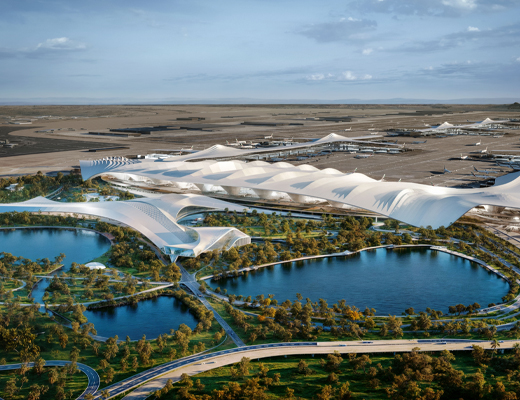
Meanwhile, DWC embodies Dubai's bold vision for aviation's future, with massive expansion plans set to redefine air travel. With a record US$35 billion investment, DWC will accommodate 150 million guests annually by the next decade, expanding ultimately to cater to 260 million guests and 12 million tonnes of cargo. Featuring five runways and cutting-edge design, DWC aims to set new benchmarks in efficiency and guest experience for the next half-century.
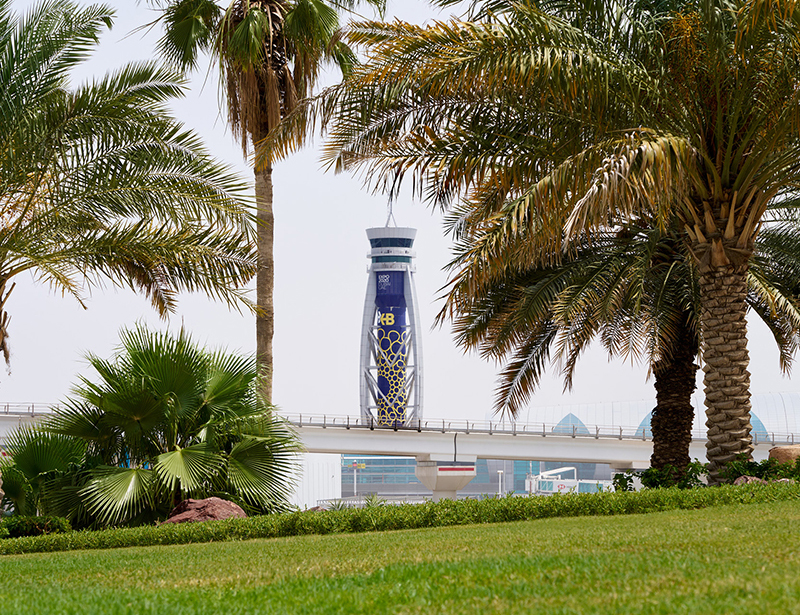
Our focus remains on delivering secure, safe, and efficient services that the guest experience while ensuring sustainable business practices. Join us on our journey as we continue to innovate and lead the evolution of global aviation.
Work to build ‘Dubai airport’ began on a vast expanse of a wasteland some four kilometres from what was then the edge of the city of Dubai.
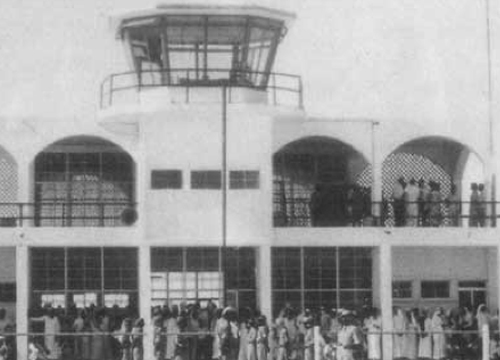
The airport comprising a sand compacted runway and a small terminal building was opened on 30 September and was capable of handling aircraft up to the size of a DC-3.
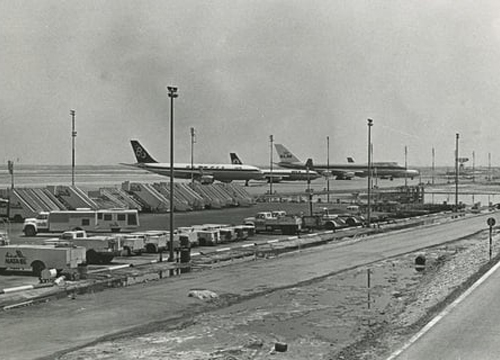
Work to build an asphalt runway began. It was opened in 1965 together with numerous other newly built or refurbished facilities.
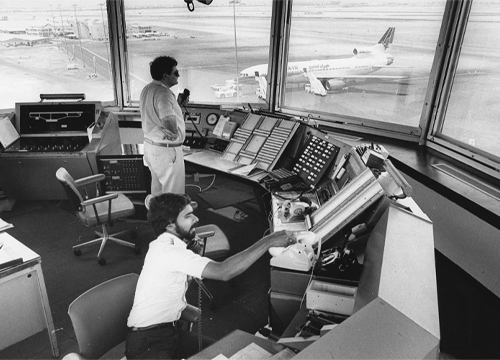
DXB accommodated nine airlines serving a total of 20 destinations.
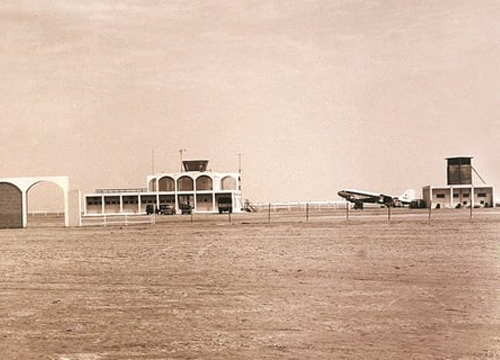
The 70s witnessed many developments across DXB, starting with a new three-storey terminal building, a new control tower, additional taxiways, lengthening of the runway, extension of aprons, airfield lighting and landing instrument.
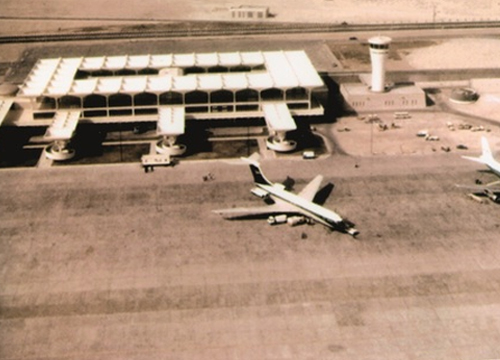
On 23 December 1980, Dubai International became an ordinary member of the Airports Council International (ACI).
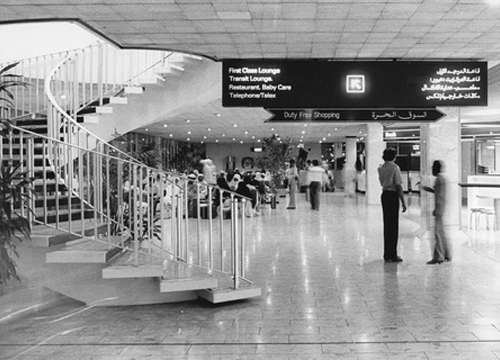
Dubai Duty Free began operations at DXB. From an annual turnover of US$20 million in its inaugural year, DDF has grown to acquire the status of the world’s single largest airport retailer with a turnover of US$2.16 billion in 2023.
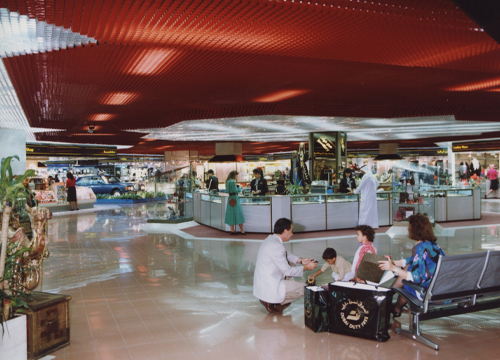
The second runway, equipped with the latest meteorological, airfield lighting and instrument landing systems to give the airport a Category II classification, was opened in April 1984.
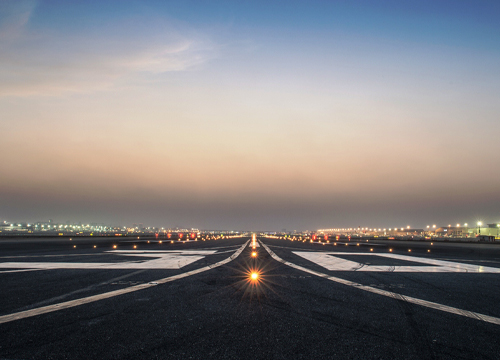
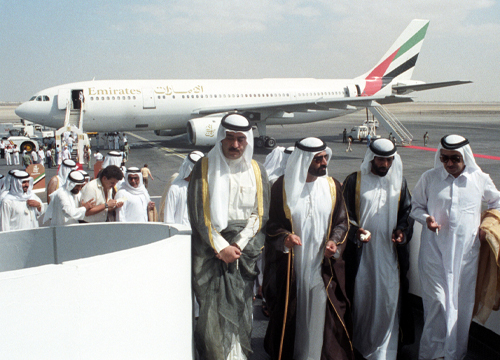
Passenger traffic at the airport increased to 4.3 million and more than doubled in a decade to 9.7 million by 1998.
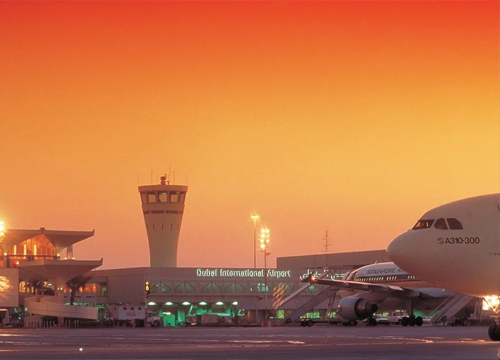
Terminal 2 was opened, increasing DXB’s capacity by 2 million passengers per annum.
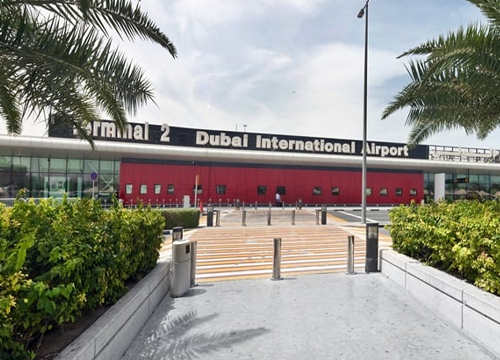
The opening of Concourse 1 (now Concourse C), marked the start of a new chapter in Dubai’s aviation history. Built as part of the first phase of the general expansion project at a cost of AED 2 billion, the Terminal increased airport's capacity from 10 million passengers per annum to 23 million passengers.
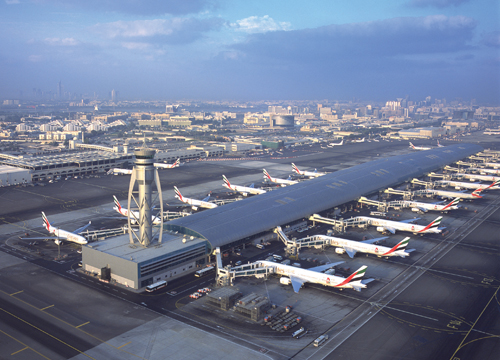
Dubai International was ranked the second fastest growing airport in the world according to Airports Council International (ACI) traffic statistics. The facility handled around 18 million passengers in 2003 and was firmly established as the aviation hub of the Middle East.
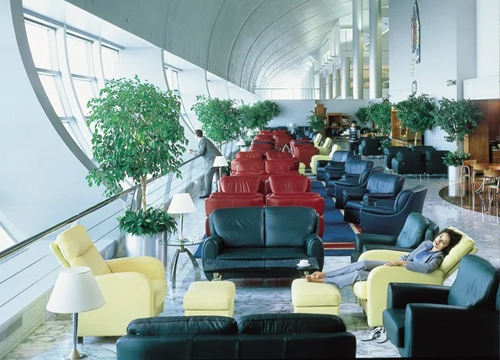
Department of Civil Aviation is restructured leading to the formation of Dubai Airports –operator of Dubai’s airports – alongside Dubai Civil Aviation Authority – the local aviation regulatory body.
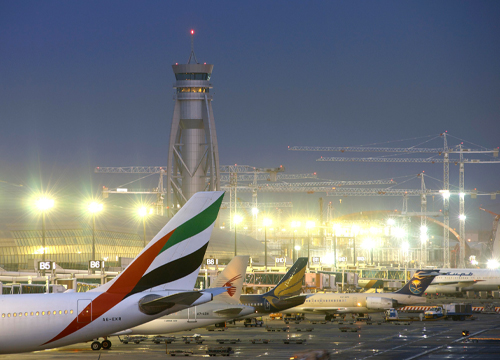
Dubai Airports opened the much-awaited DXB Terminal 3 was opened for the exclusive use of Emirates airline. The terminal expanded the airport’s annual passenger capacity to 60 million and the aviation industry worldwide
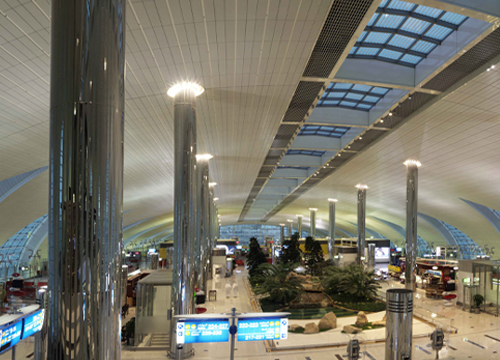
Passenger traffic surpasses the 40 million-mark making DXB the world’s fastest growing airport among top 50 hubs.
Work begins on Concourse A and Terminal 2 undergoes refurbishment for the launch of flydubai, Dubai’s second carrier.
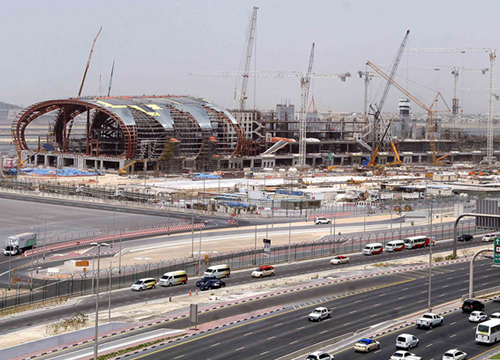
Dubai Airports opens the first phase of Dubai World Central – Al Maktoum International (DWC) for cargo operations on June 27.
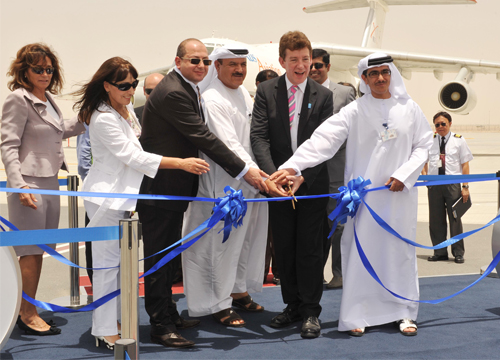
Concourse A, the world’s largest facility purpose built for the A380 opens at DXB.
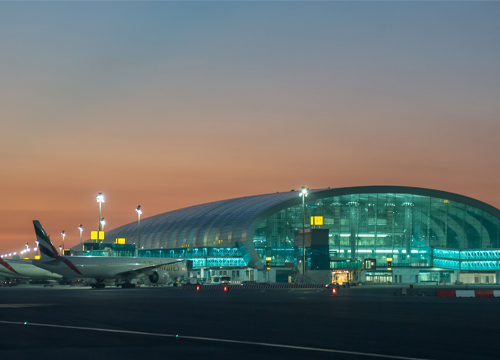
DXB welcomes 70.4 million passengers in 2014 to become the world’s number 1 airport for international passenger traffic.
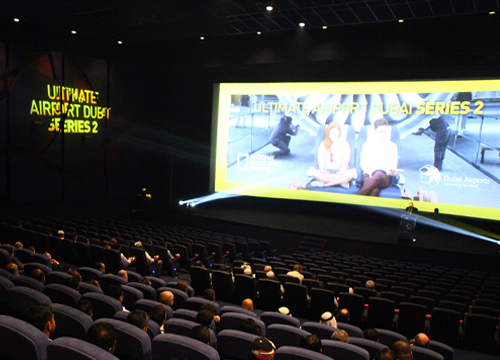
Concourse D, a $1.2 billion state-of-the-art facility serving 60+ international carriers, operating out of Terminal 1 opens.
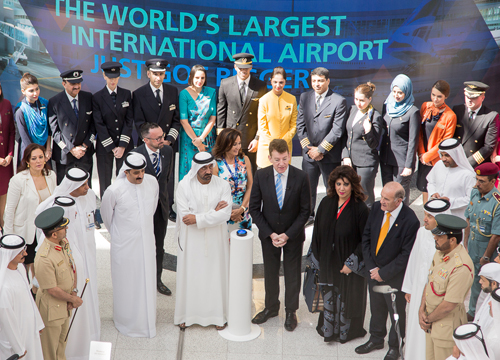
DXB welcomes its one billionth international passenger.

DXB achieves Level 3 of ACI’s Airport Carbon Accreditation Programme.
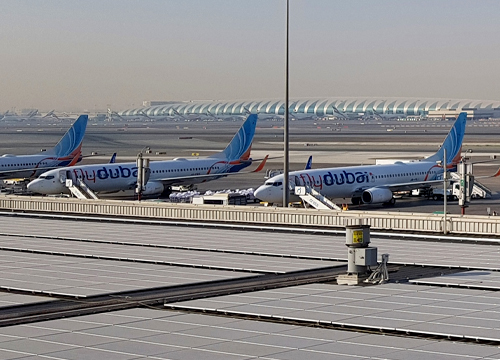
Operations at DXB are partially suspended on March 25, 2020 as part of measures by UAE authorities to combat the spread of COVID-19.
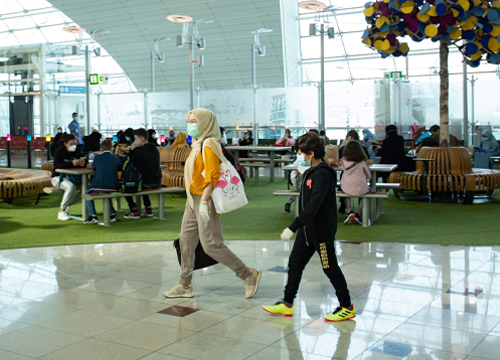
Dubai's aviation sector joins forces to help return thousands of people to their homes on special repatriation flights.
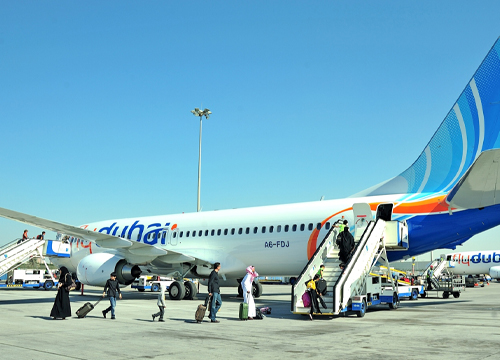
DXB becomes one of the first major hubs globally to reopen on July 7, 2020 after partial suspension of operations on March 25 (special flights, repatriation operations and cargo flights continued throughout).
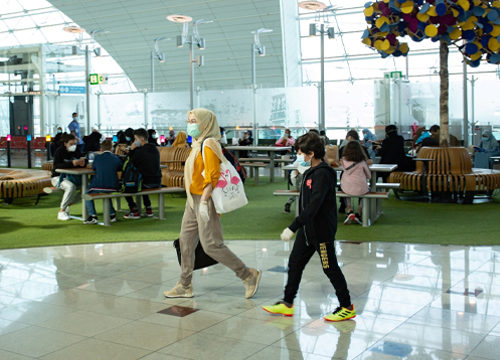
DXB reopens Terminal 1 and Concourse D on June 24 after 15 months. The facilities were closed on March 25, 2020 following the suspension of operations at DXB as part of the measures to control the spread of Covid-19.
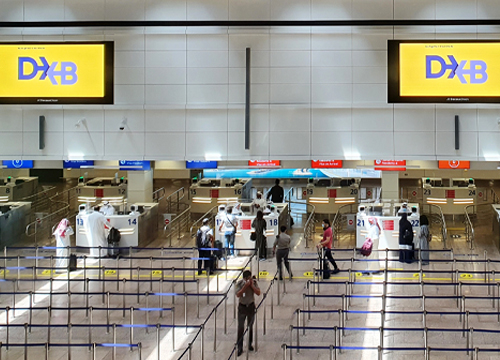
Dubai Airports, Dubai Health Authority and Pure Health open a 20,000 square-foot in airport lab with 100,000 tests per day capacity.
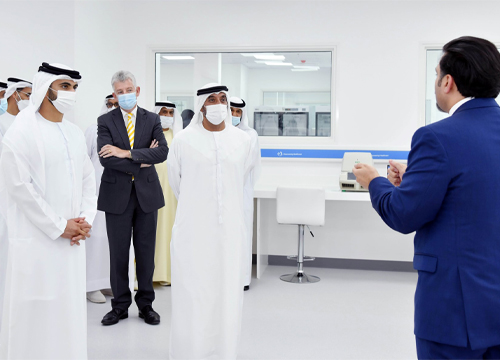
Dubai Airports completes the 45-day rehabilitation project for DXB's northern runway on June 22.
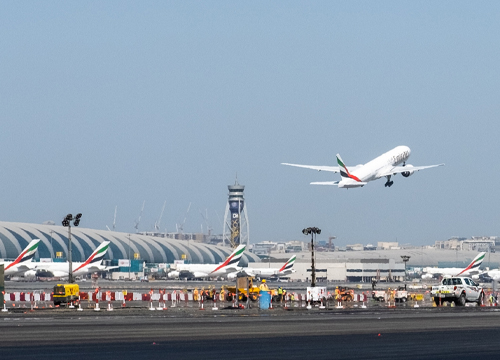
DXB received accreditation from the Airports Council International (ACI) under its Accessibility Enhancement Accreditation Programme, a first-of-its-kind initiative that recognises global airports’ commitment to accessible travel operations.
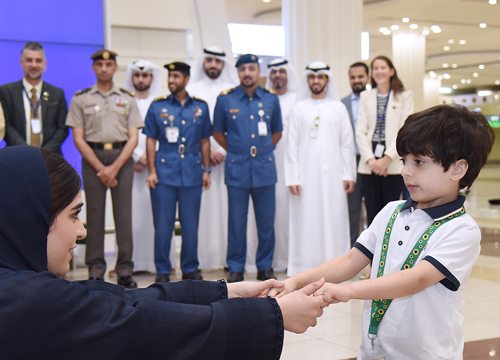
DXB retains its position as the world's number one airport for international passenger traffic for the 10th year running.
